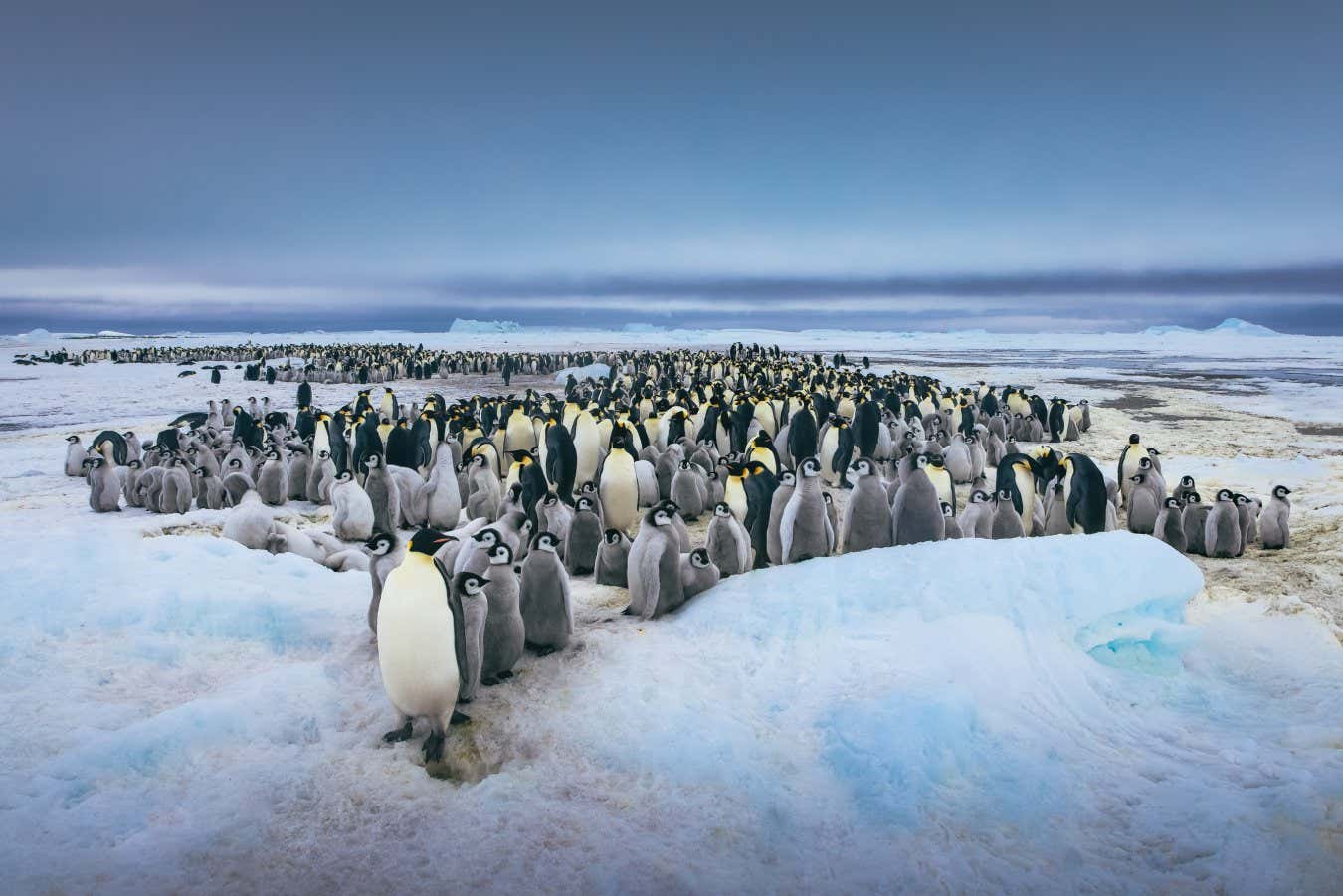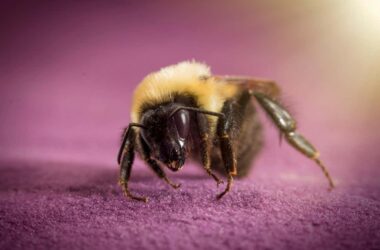Record sea ice loss in Antarctica resulted in a significant die-off of emperor penguin chicks, suggesting that these iconic birds are at risk of extinction. Unlike other penguins, emperor penguins breed on sea ice instead of land. Male emperor penguins hatch eggs during the Antarctic winter in August. The young chicks need stable sea ice until December to develop their waterproof feathers and gain enough strength to swim. If they enter the water before they are ready, they may drown or freeze to death.
In February of last year, the sea ice around Antarctica reached its lowest extent ever recorded. As a result, four out of five colonies in the hard-hit central and eastern Bellingshausen Sea experienced total breeding failure, with no chicks surviving to maturity. Peter Fretwell from the British Antarctic Survey and his colleagues conducted research and found that the sea ice breakup in the area began late last year. To monitor the penguin populations, the team used satellite photos to identify penguin guano stains on the ice, which indicated the presence of colonies. They then counted the individual penguins in high-resolution satellite images.
One of the studied colonies, which has been monitored since 2009 off the northern coast of Smyley Island, typically had 3500 breeding pairs that produced one chick each. In previous years, the sea ice at this site would persist until early December. However, in 2022, the sea ice broke up in mid-November, causing the penguins to abandon the colony along with their chicks. Although this study focused on the Bellingshausen Sea area, the team’s monitoring work revealed that 19 out of the 62 known emperor penguin colonies in Antarctica were affected by sea ice loss, resulting in the death of some chicks.
These observations align with modeling predictions that suggest 90 percent of emperor penguin colonies could be extinct or nearing extinction by 2100 if global warming continues at its current pace. While colonies can occasionally lose chicks due to severe storms or winds breaking up the sea ice, this is the first time that widespread breeding failure has been linked directly to shrinking ice.
The implications of this situation on the population size of emperor penguins are still uncertain. Tom Hart from Oxford Brookes University describes the situation as an “alarm bell,” emphasizing the need to understand how the penguins will react if this phenomenon becomes a recurring trend. Rory Wilson from Swansea University also expresses concern about how the penguins will adapt as a group for their overall well-being.








